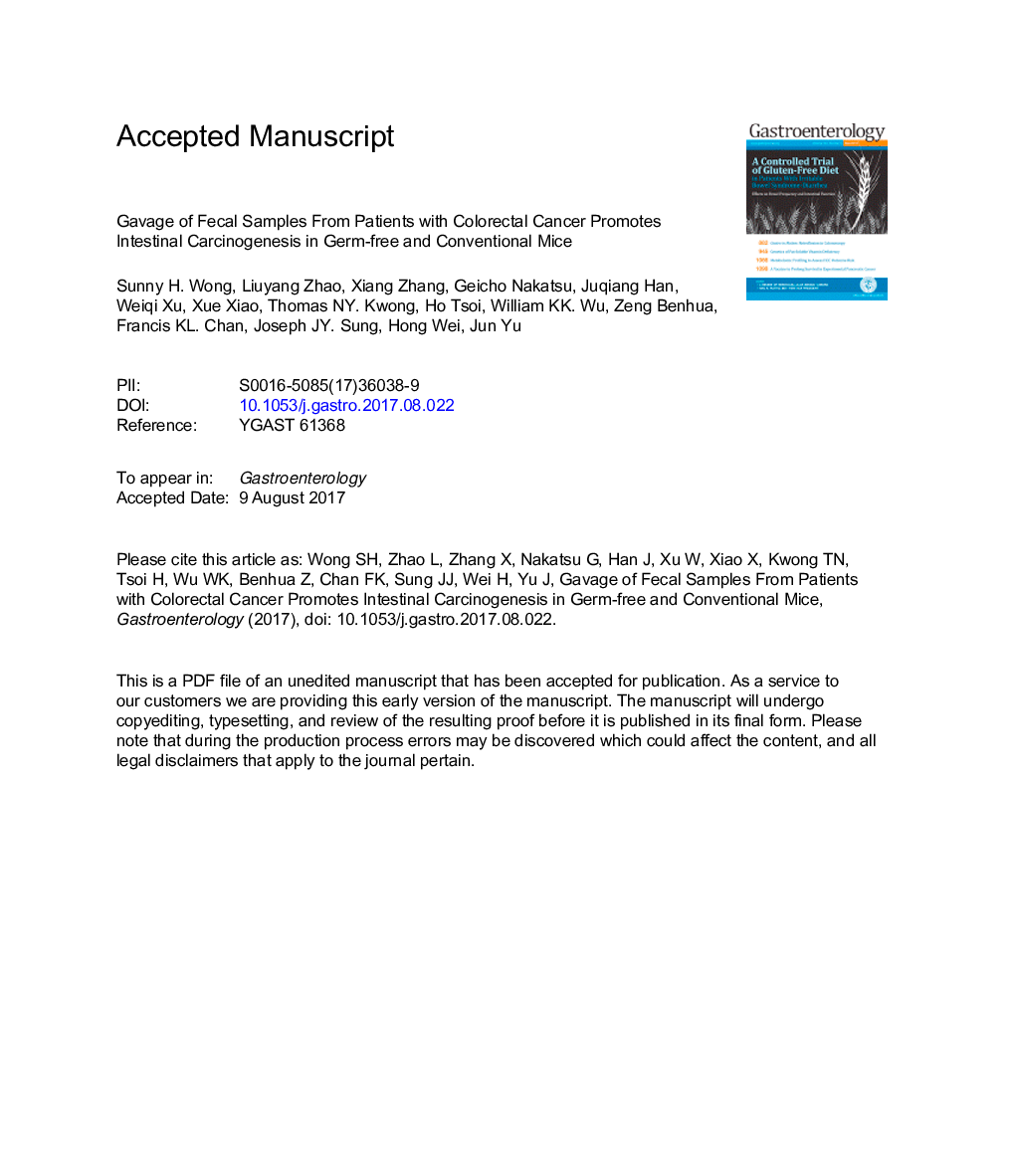| Article ID | Journal | Published Year | Pages | File Type |
|---|---|---|---|---|
| 8727387 | Gastroenterology | 2017 | 48 Pages |
Abstract
We fed stool samples from patients with CRC and heathy individuals to germ-free mice and conventional mice with azoxymethane. We found stool from patients with CRC to increase the numbers of polyps, levels of intestinal dysplasia and proliferation, markers of inflammation, and proportions of Th1 and Th17 cells in colon, compared with stool from individuals without CRC. This study provides evidence that the fecal microbiota from patients with CRC can promote tumorigenesis in germ-free mice and mice given a carcinogen.
Keywords
SOBSrRNAPCNAPBSPERMANOVACXCRFITCIFN-γDSSazoxymethaneAOMRT-PCROTURibosomal RNAProliferating Cell Nuclear Antigeninterleukingerm-freepermutational multivariate analysis of variancecluster of differentiationreverse transcription PCRColorectal cancerColon cancerCarcinogenesisDextran sulfate sodiumphycoerythrinfluorescein isothiocyanatePhosphate-buffered salineoperational taxonomic unitpolymerase chain reactionPCRCRChealthy controlInterferon gamma
Related Topics
Health Sciences
Medicine and Dentistry
Gastroenterology
Authors
Sunny H. Wong, Liuyang Zhao, Xiang Zhang, Geicho Nakatsu, Juqiang Han, Weiqi Xu, Xue Xiao, Thomas N.Y. Kwong, Ho Tsoi, William K.K. Wu, Benhua Zeng, Francis K.L. Chan, Joseph J.Y. Sung, Hong Wei, Jun Yu,
